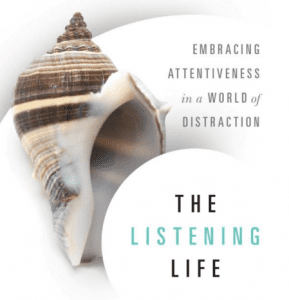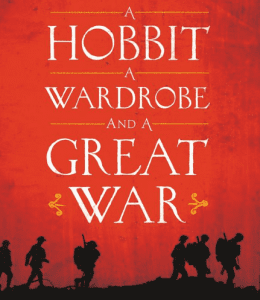 Joseph Epstein is perhaps America’s most well-known familiar essayist, and I’ve read all of his books — unless I’ve not heard of one or two. Not that it matters except for this: I speak from experience when I say he may be America’s best familiar essayist. The competition, quite frankly, is not intense because there are simply not many platforms in the publishing world where an essayist can find a place to stand at the dais. Epstein found it and then expanded his audience at The American Scholar. When he was pushed from behind the dais and they handed it over to Anne Faddiman, I was less interested in the magazine, and then they pushed her aside and the thing just fell apart (for me at least). I cancelled my subscription and have not looked back.
Joseph Epstein is perhaps America’s most well-known familiar essayist, and I’ve read all of his books — unless I’ve not heard of one or two. Not that it matters except for this: I speak from experience when I say he may be America’s best familiar essayist. The competition, quite frankly, is not intense because there are simply not many platforms in the publishing world where an essayist can find a place to stand at the dais. Epstein found it and then expanded his audience at The American Scholar. When he was pushed from behind the dais and they handed it over to Anne Faddiman, I was less interested in the magazine, and then they pushed her aside and the thing just fell apart (for me at least). I cancelled my subscription and have not looked back.
Which may just say that I prefer my essayists to write like Epstein. I don’t read much friction, as some have called the game of making things up into a meaningful tale. But I do read Epstein’s jaunty short stories, the last of which was a collection called The Love Song of A. Jerome Minkoff: And Other Stories. He writes about the realities and ironies of Jewish men mostly, and he also writes straight scoop about Chicago. His stories don’t grab but they do keep the reader.
Essayists of an Epstein sort are about taking a line out for a walk, a line of thinking that is. There’s no real argument to the familiar essay, no singular point, no definitive answer, no sketching of options, no four points and a conclusion. The game is to be played by enjoying what you see as you stroll through the literature and people — and Epstein has no peer when it comes to knowing the inside story about that literature (he taught at Northwestern), having masterful quotes from his commonplace notebooks, and the gossip about the people, and it is right here that we have to pause for his latest book, Gossip. Which book is a line out for a very long, snoopy walk.
When I saw that his next book was called Gossip my first thought was “There’s no one more interested in gossip than Epstein, and there’s no one who could write more ins and outs about gossip.” Over my years of reading the man I’ve observed time and time again that he had some juicy morsel of inside information — something he calls “unedited information” (something he swipes from Matt Drudge of The Drudge Report) — and I noticed what I thought was a faint air of pride in knowing just that tidbit. Often it was something about someone’s sex life, which seems to be one of his specialties — knowing, that is, the inside-the-bedroom scoop — but sometimes his approach to his reporting borders on the tasteless.
Now another problem: Epstein writes better essays than he does full-length books on topics. This was my response to Ambition, Friendship, and Snobbery. Each got a little too long; they weren’t going anywhere; the joy was wearing thin; essays aren’t made to go on that long. One can take a line out for a walk but at some point the Spaziergang seems to shift from a stroll into a serious trek, and that is when you wonder if you should have brought hardier shoes. For an essay to become a good book, and I mean as good a book as are his essays, there’s got to be some plot. I’d rate his essays — some of them on themes, others on writers, some of the appreciative and others downright savage — at the top of his game. Then I’d take his short stories, one at a time, one or two a day. Then comes his full-length books, and here’s what I’ve learned: because of said lack of plot, Epstein’s full-length books are better read a chapter every other night or so. Read that way, they are very good collections of essays on a single topic. In other words, in reading one of Epstein’s thematic books bring some company for the walk.
Well, what of his book-length biographies, or studies of people? Alexis de Tocqueville and Fred Astaire are OK, but I kept looking for the Epstein the essayist to come through, and he did but when I hear the essayist I lose contact with the biography. Reading an Epstein biography is like watching a Hollywood celebrity on Broadway — the genre doesn’t fit the actor.
When read over a couple weeks, Epstein’s Gossip book is good, and at times downright excellent but at other times inexcusably prurient. We are talking here about TMI but why stoop that low? Because of this, Gossip floats constantly on the waters of irony — he can be quite critical of dishing out gossip and then do more than the same himself. His studies of Winchell, Baba Wawa and Tina Brown crossed the line for me from discussing their gossipy writing and life into the territory of savagery. Should you care to know, he was hardest on Barbara Walters — and I had Kris read that chapter not long after she had read Audition, Walters’ autobiography, and Kris thought he was too hard on her.
You don’t read an Epstein kind of writer to get analysis but instead to walk with the one has a line of thinking, so his rough-and-(not always)-ready definition of gossip worked throughout: “one party telling another what a third party doesn’t want known.” He’s got more than enough examples of this meaning of gossip, and even shows how much of journalism — and other forms of communication — fit the gossip genre, not the least of which is the political “leak.” One may well wonder at times if he doesn’t expand the meaning of the word beyond recognition.
This history of gossip-dom is cut into three parts: Private Gossip, Public Gossip, and Private Become Public. Interspersed are four “Great Gossips” sections (Duc de Saint-Simon, Walter Winchell, Barbara Walters, Tina Brown) and at the end of each chapter Epstein includes his own “Diary” of some gossip, some of which is fascinating while a few are over the top and become put-downs instead of gossip — and wound the value of this book.
What one won’t find in Gossip is the plumbing of the human condition deeply enough to make one stop and wonder why it is that we gossip as we do and whether or not it is a good — instead, we read along waiting for his next bit of gossip, or a put-down, or a really good story about how gossip works. One of the elements, let’s call it the underbelly of gossip, is the damage and devastation gossip has done, does and will continue to do but the underbelly is left mostly unexposed while we read plenty about the exposed belly of gossip. Epstein, truth be told, likes gossip and the put-down too much to turn the white heat of criticism and moral indignation against either. Perhaps this confession of his puts it best: “The best gossip for me is that which confirms my own views of the essential fraudulence of certain people, especially people who present themselves as a touch — and usually more than a touch — more moral than the rest of us” (58). Put with this comment his comment about Barbara interviewing folks wanting publicity: “One dirty hand washes the other” (154).















